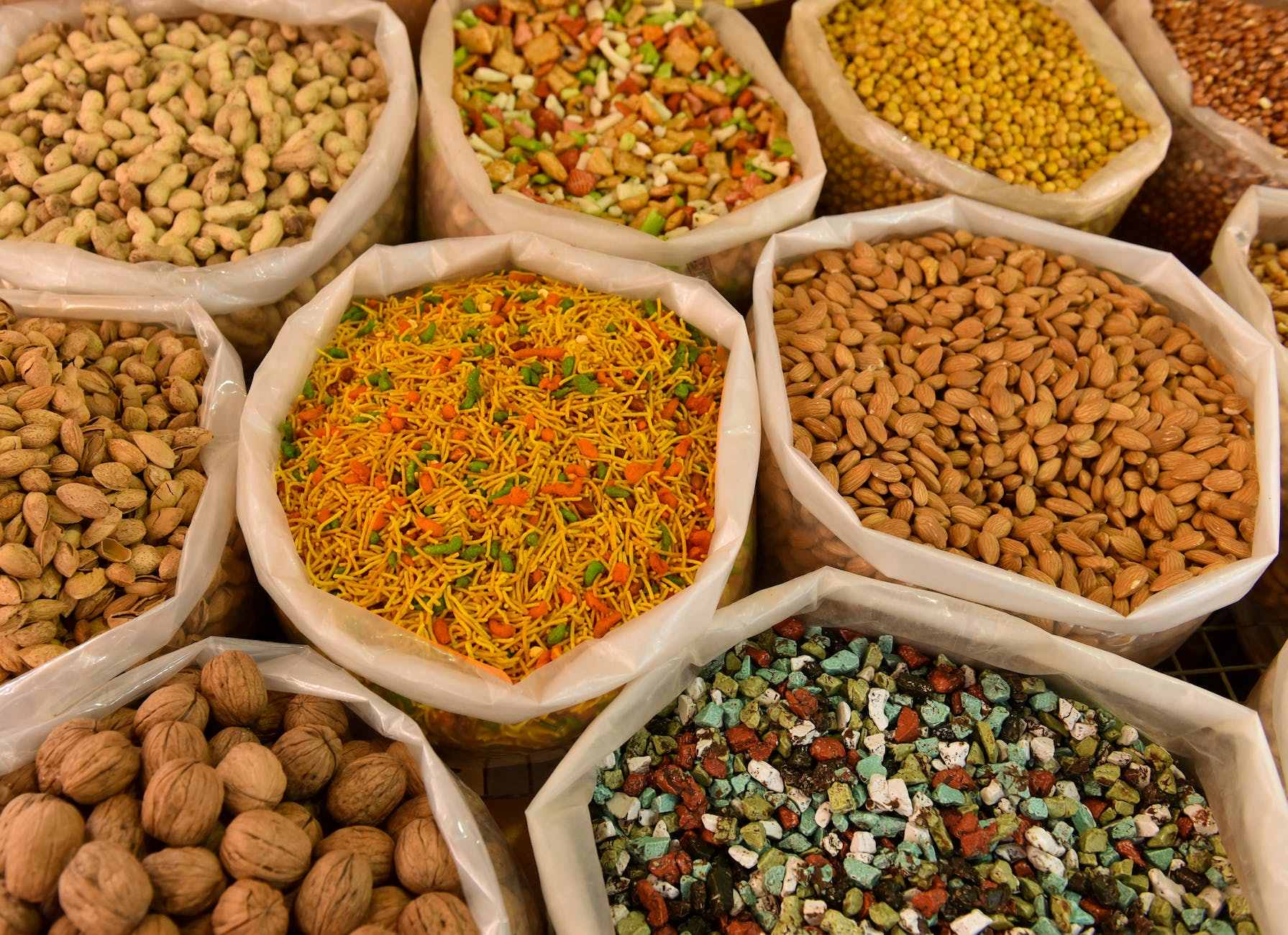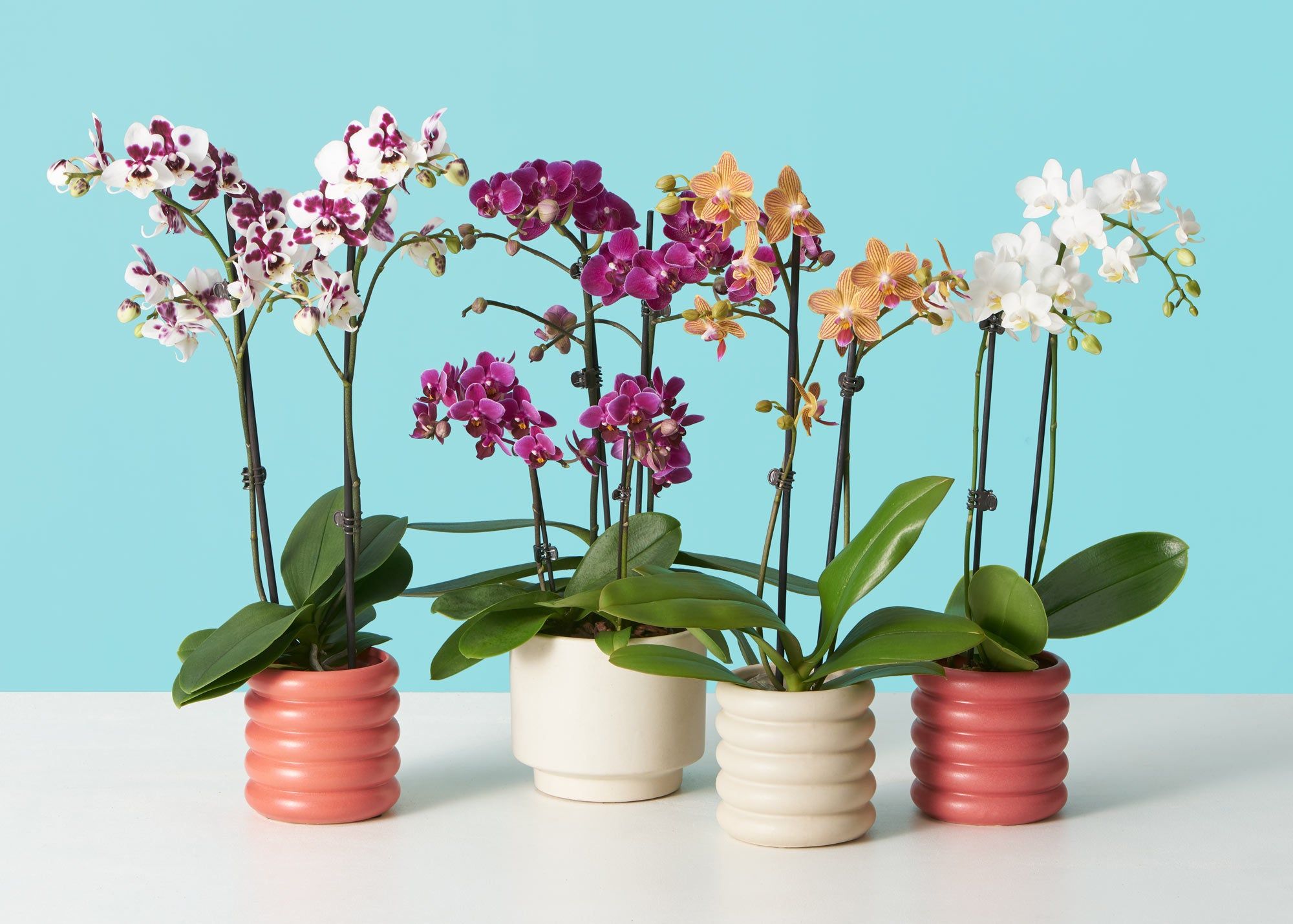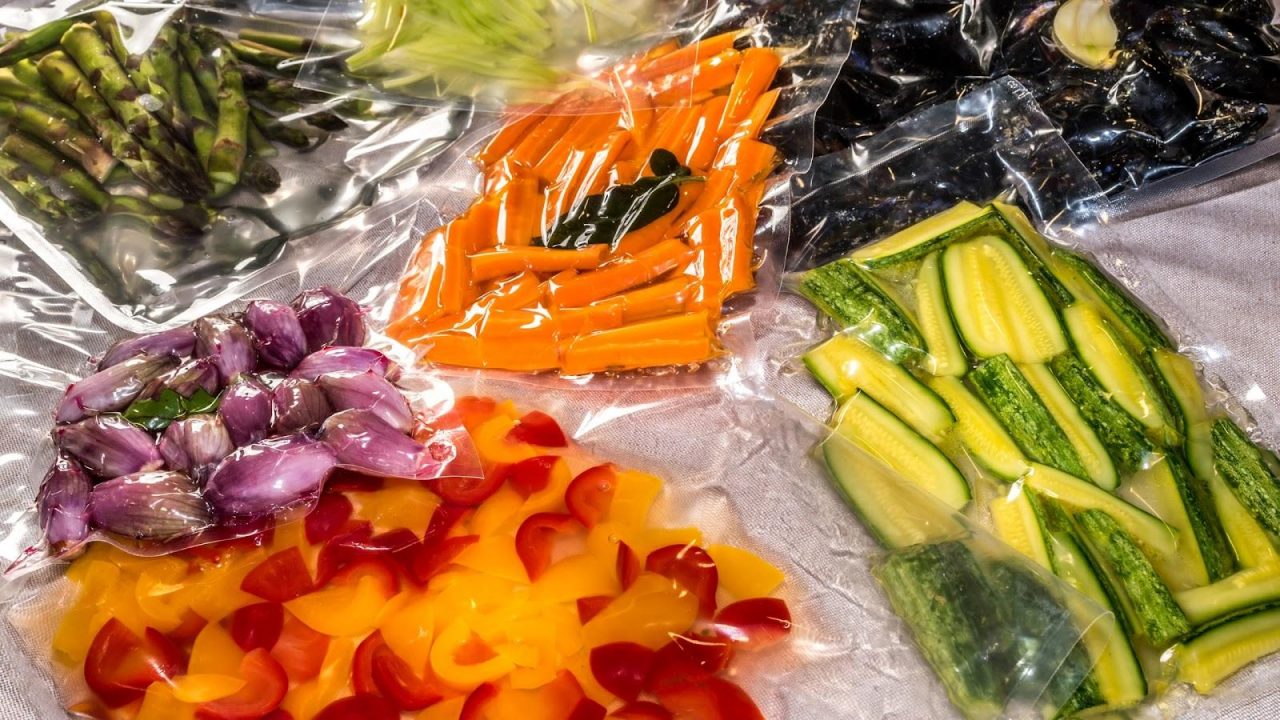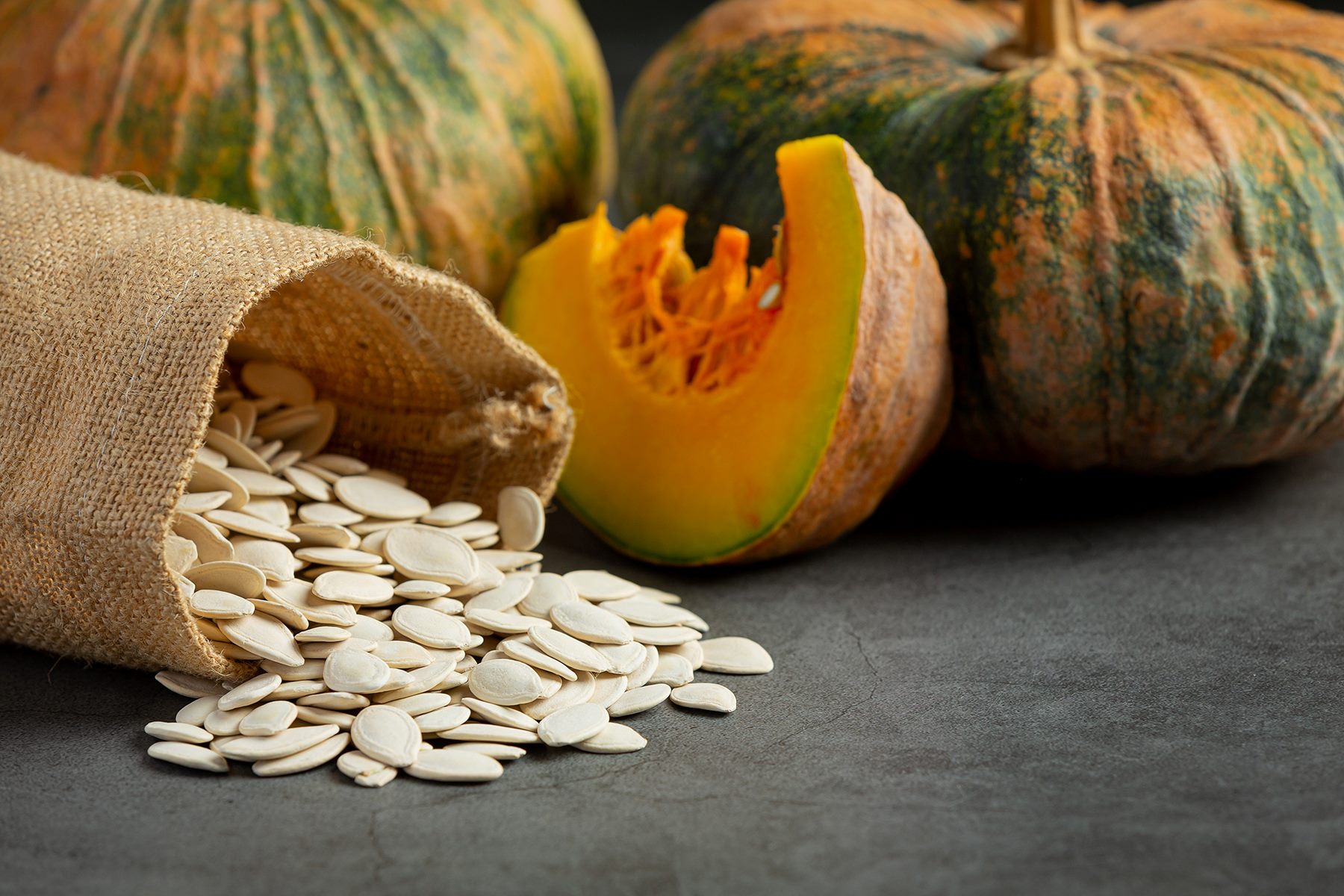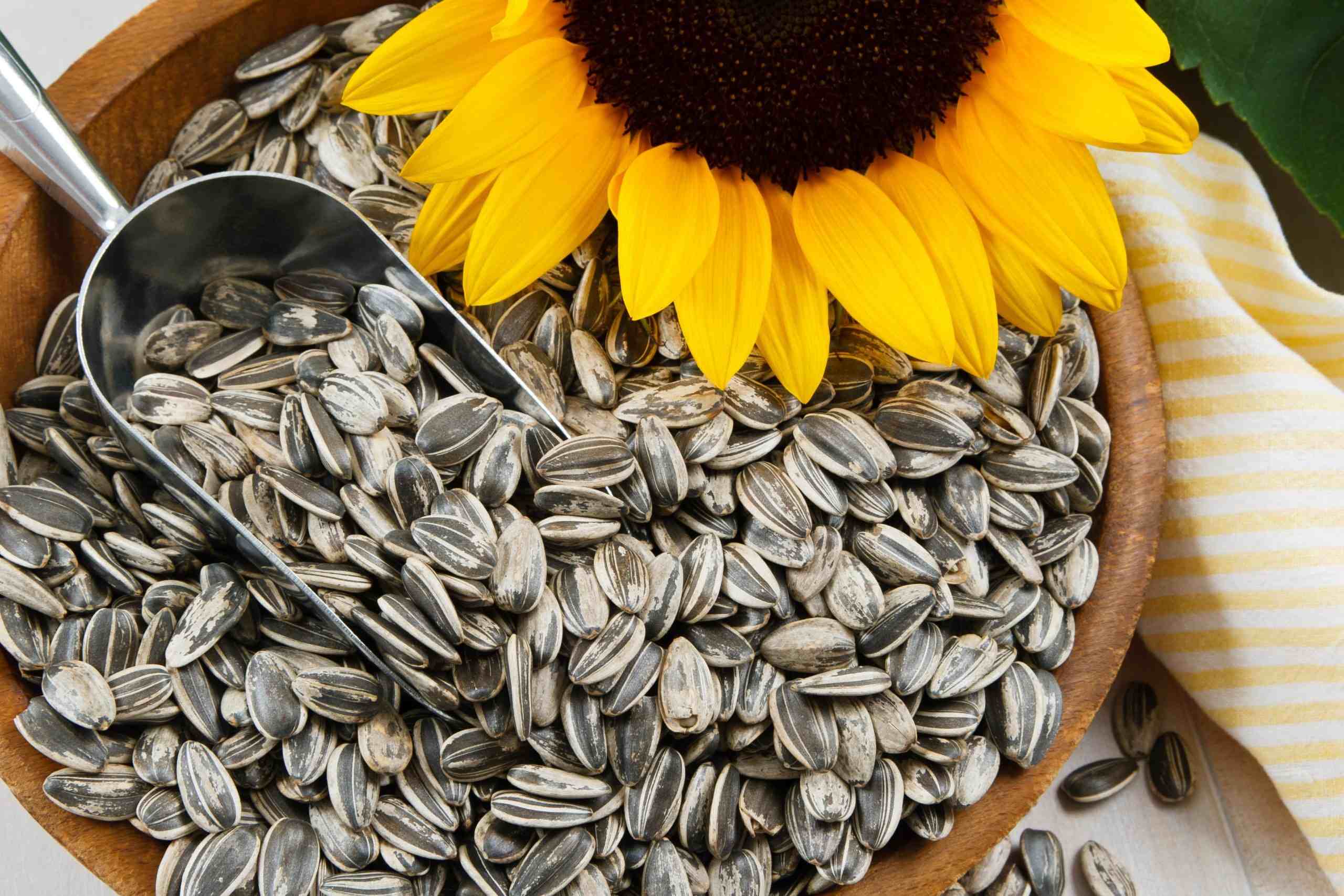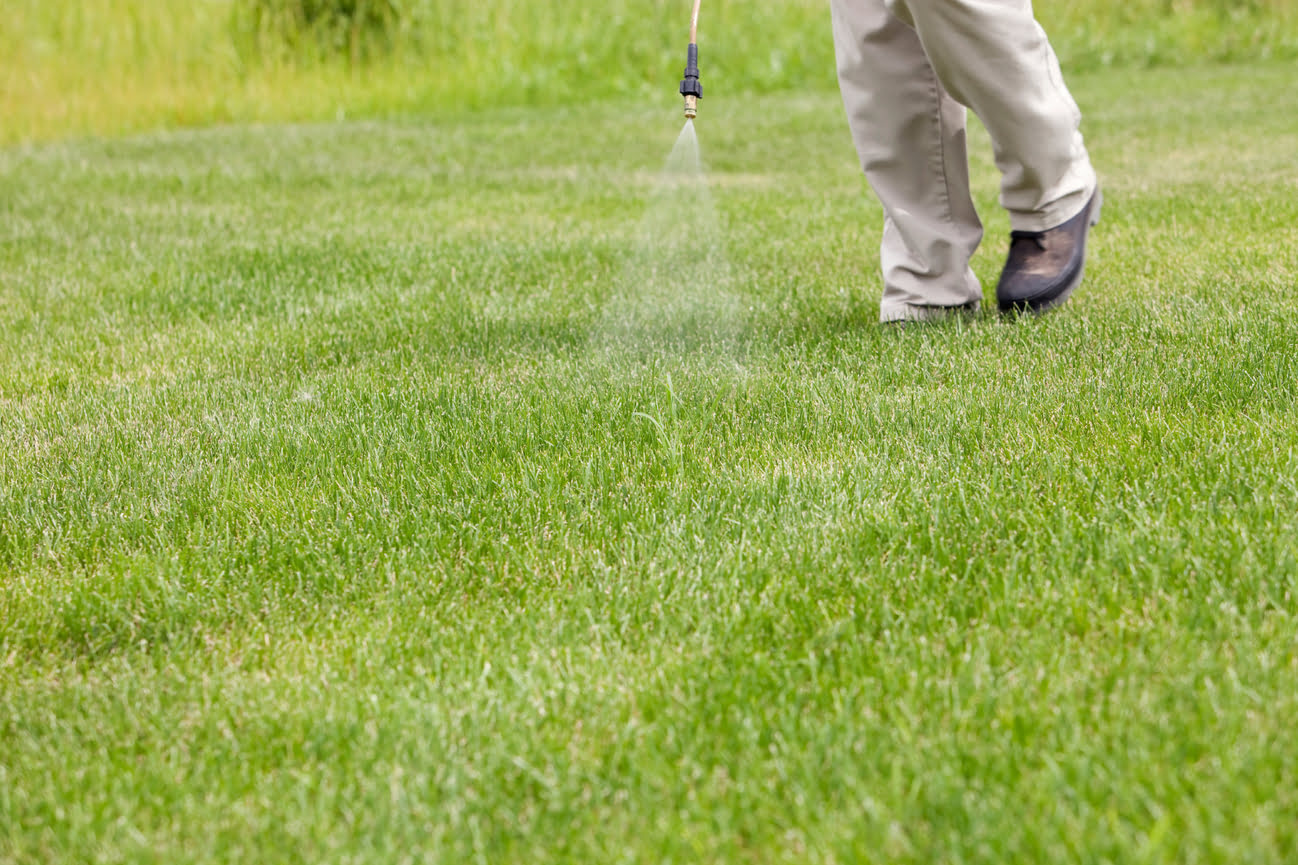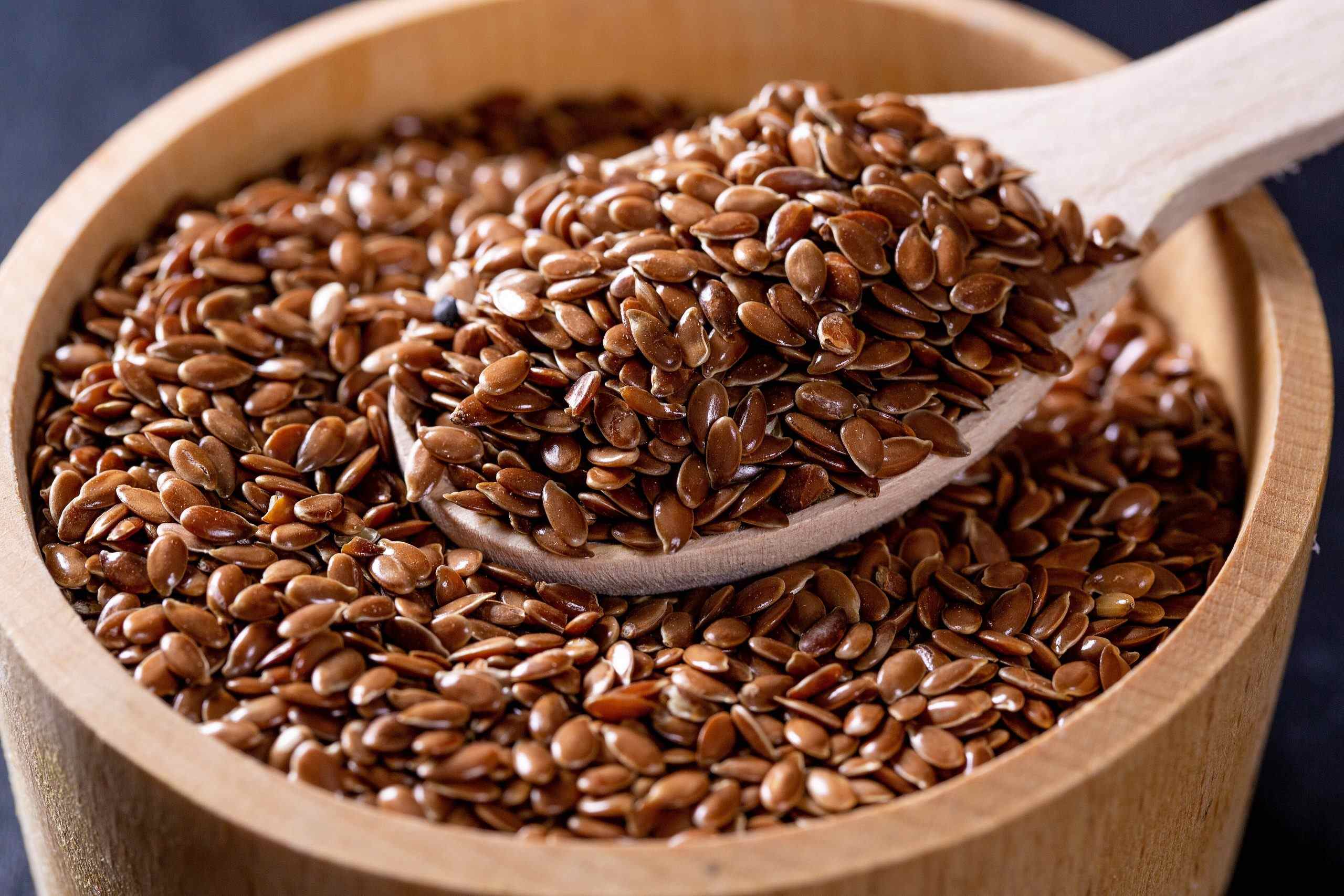Home>Gardening News and Trends>Latest News>How Long Do Vegetables Last In The Freezer


Latest News
How Long Do Vegetables Last In The Freezer
Modified: January 22, 2024
Discover the latest news on how long vegetables can last in the freezer. Learn about proper storage techniques to keep your veggies fresh and nutritious.
(Many of the links in this article redirect to a specific reviewed product. Your purchase of these products through affiliate links helps to generate commission for Chicagolandgardening.com, at no extra cost. Learn more)
Table of Contents
- Introduction
- Understanding Freezing Vegetables
- Factors Affecting Vegetable Shelf Life in the Freezer
- Recommended Freezing Times for Different Vegetables
- Tips for Properly Freezing Vegetables
- How to Store Frozen Vegetables
- Signs of Freezer Burn and Spoilage
- Benefits of Freezing Vegetables
- Frequently Asked Questions (FAQs)
- Conclusion
Introduction
Welcome to the world of frozen vegetables! Whether you’re looking to preserve the abundance of your homegrown garden or want to take advantage of the convenience and nutritional benefits of frozen veggies, understanding how long vegetables last in the freezer is essential. Freezing vegetables is a great way to extend their shelf life while maintaining their taste, texture, and nutritional value. By properly freezing vegetables, you can have a ready supply of your favorite greens and colorful produce throughout the year.
Knowing the optimal freezing times for different vegetables and understanding the factors that affect their shelf life in the freezer can help you make the most of your frozen stash. This article will provide you with essential information on freezing vegetables, including recommended freezing times, storage tips, and how to identify signs of freezer burn or spoilage. We will also explore the benefits of freezing vegetables and address some frequently asked questions.
So, if you’re ready to dive into the world of freezing vegetables and discover how to make your produce last longer, keep reading! Whether you’re a seasoned gardener or someone looking to stock up on nutritious and convenient options, this guide will help you make the most of your freezer and enjoy the goodness of vegetables all year round. Let’s get started!
Understanding Freezing Vegetables
Freezing vegetables is a simple and effective method of preservation that allows you to extend the shelf life of your favorite greens and colorful produce. When vegetables are properly frozen, they retain their natural flavors, textures, and nutrients for an extended period. Understanding the science behind freezing vegetables can help you make informed decisions about the best practices for storing and using them.
When vegetables are exposed to freezing temperatures, the water inside their cells turns into ice crystals. These ice crystals can cause the cell walls to rupture, leading to changes in texture and quality. To minimize this, it is important to blanch most vegetables before freezing. Blanching involves briefly boiling the vegetables and then quickly cooling them in ice water. Blanching helps inactivating enzymes that can degrade the vegetables and helps preserve their color and texture. However, some vegetables, like peppers and onions, can be frozen without blanching.
Understanding the moisture content of vegetables is also essential for successful freezing. High moisture vegetables, such as leafy greens and cucumbers, tend to have a higher water content, making them prone to becoming mushy when frozen. To maintain their quality, it’s recommended to blanch these vegetables and remove excess moisture before freezing. On the other hand, low moisture vegetables, like carrots and broccoli, freeze well without blanching but may require extra care in packaging to prevent freezer burn.
It’s worth mentioning that freezing does not completely stop the enzymatic activity in vegetables; it simply slows it down significantly. Over time, the quality of the frozen vegetables will gradually decline. To maximize the shelf life and maintain the best quality, it’s important to follow recommended freezing times and storage guidelines specific to each vegetable.
Overall, understanding the principles of freezing vegetables empowers you to make the most of your produce and enjoy their freshness even after months in the freezer. By blanching, controlling moisture, and being aware of the enzymatic activity, you can ensure that your frozen vegetables retain their taste, texture, and nutritional value for an extended period.
Factors Affecting Vegetable Shelf Life in the Freezer
While freezing can significantly extend the shelf life of vegetables, several factors can affect their quality and overall longevity in the freezer. Understanding these factors allows you to make informed choices when it comes to freezing and storing your vegetables.
Quality of the Vegetables: The quality of the vegetables you freeze plays a crucial role in determining how long they will last. Using fresh, ripe, and high-quality produce ensures that the frozen vegetables retain their taste and texture for an extended period.
Preparation and Blanching: Properly preparing and blanching vegetables before freezing helps maintain their quality. Blanching helps inactivate enzymes that can cause deterioration, discoloration, and loss of texture during freezing. It is important to follow the correct blanching times for each vegetable to ensure optimum results.
Packaging and Storage: The way you package and store your frozen vegetables can significantly impact their shelf life. Transfer blanched and cooled vegetables into airtight containers or freezer bags, removing as much air as possible to prevent freezer burn. Label the packages with the contents and freezing date to keep track of their freshness. Placing the vegetables in the coldest part of the freezer, at or below 0°F (-18°C), helps maintain their quality.
Freezing Time: Different vegetables have varying recommended freezing times. Freezing vegetables for too long can lead to quality degradation. It is best to freeze vegetables at their peak freshness and use them within the recommended time frame for the best results.
Enzymatic Activity: Although freezing slows down enzymatic activity, it does not completely halt it. Enzymes can still cause changes in color, flavor, and texture over time. Properly blanching vegetables before freezing helps deactivate enzymes, extending the shelf life and maintaining quality.
Frequent Temperature Fluctuations: Consistent temperature is crucial for maintaining the quality of frozen vegetables. Frequent fluctuations in temperature can lead to freezer burn, which affects the flavor, texture, and nutritional value of the vegetables. It is important to ensure that your freezer maintains a constant temperature.
By considering these factors and taking appropriate measures, such as proper preparation, packaging, and storage, you can ensure that your frozen vegetables remain fresh and flavorful for an extended period. Being aware of these factors empowers you to make the most of your freezer and enjoy the convenience of having nutritious vegetables on hand at all times.
Recommended Freezing Times for Different Vegetables
Freezing vegetables at the peak of their freshness ensures that they retain their taste, texture, and nutritional value over time. While freezing can extend the shelf life of most vegetables, it’s important to note that each vegetable has its own recommended freezing time for optimal quality. Here are some common vegetables along with their recommended freezing times:
- Leafy Greens: Spinach, kale, and other leafy greens should be blanched for 2-3 minutes and then frozen for up to 10-12 months.
- Broccoli: Blanch broccoli florets for 3-4 minutes, cool them quickly, and freeze for up to 12-18 months.
- Cauliflower: Blanch cauliflower florets for 3-5 minutes, cool them rapidly, and freeze for up to 12-18 months.
- Carrots: Cut carrots into slices or sticks, blanch for 2-3 minutes, cool, and freeze for up to 12 months.
- Bell Peppers: Cut peppers into slices or cubes, freeze without blanching, and use within 10-12 months for best quality.
- Onions: Chop or slice onions, freeze without blanching, and use within 3-6 months for optimal flavor.
- Peas: Blanch fresh peas for 1-2 minutes, cool them rapidly, and freeze for up to 6-12 months.
- Corn: Blanch whole ears of corn for 4-6 minutes, cool, and either freeze the whole ears or remove the kernels and freeze for up to 6-12 months.
It’s important to follow these recommended freezing times to ensure that the vegetables retain their quality and taste. Freezing vegetables for too long can lead to quality degradation, while not freezing them long enough may result in a loss of nutritional value.
Remember to label your frozen vegetables with the freezing date, as this will help you keep track of their freshness. It’s also a good practice to use the principle of “first in, first out,” meaning to use the oldest frozen vegetables first to prevent them from sitting in the freezer for too long.
By following the recommended freezing times, you can ensure that your frozen vegetables taste as fresh as possible, allowing you to enjoy their goodness even when they’re out of season. So, get ready to preserve the flavors of your favorite vegetables and keep them readily available for your culinary creations.
Tips for Properly Freezing Vegetables
Properly freezing vegetables is key to preserving their taste, texture, and nutritional value. By following these tips, you can ensure that your frozen vegetables maintain their quality and are ready to be used whenever you need them:
- Choose Fresh, High-Quality Vegetables: Select vegetables that are ripe, fresh, and in their prime condition. This will ensure that they freeze well and maintain their flavor and nutrients.
- Wash and Prepare Vegetables: Wash vegetables thoroughly to remove any dirt or impurities. Cut them into the desired size and shape, such as slices, cubes, or florets, depending on your preference and recipe requirements.
- Blanch the Vegetables: Blanching vegetables before freezing helps deactivate enzymes that can cause quality deterioration. Boil the vegetables in hot water for a specific amount of time depending on the vegetable type and then transfer them to an ice bath to cool down quickly.
- Remove Excess Moisture: After blanching, make sure to drain the vegetables well and remove any excess moisture. Extra moisture can lead to freezer burn and affect the quality of the vegetables.
- Use Airtight Containers or Freezer Bags: Transfer the blanched and drained vegetables into airtight containers or freezer bags. Remove as much air as possible to prevent freezer burn. Label the containers with the vegetable name and freezing date for easy identification.
- Packaging Portion Sizes: Consider portioning the vegetables before freezing. This way, you can easily use the amount you need without thawing the entire batch.
- Place in the Coldest Part of the Freezer: Store the frozen vegetables in the coldest part of your freezer (usually the back or bottom) at or below 0°F (-18°C). Keeping a consistent and low temperature will help maintain the quality of the vegetables.
- Practice FIFO Method: Use the “first in, first out” method when it comes to using your frozen vegetables. Use the oldest packages first to prevent them from sitting in the freezer for too long.
- Label and Date the Packages: Properly label each package with the vegetable name and freezing date. This will help you keep track of its freshness and ensure you use it within the recommended time frame.
By following these tips, you can ensure that your frozen vegetables are well-preserved and ready to enhance your meals with their fresh flavors and nutrients. Properly freezing vegetables not only extends their shelf life but also allows you to make the most of your produce and reduce food waste.
How to Store Frozen Vegetables
Proper storage of frozen vegetables is crucial for maintaining their quality and ensuring that they stay fresh for an extended period. By following these guidelines, you can ensure that your frozen vegetables remain in optimal condition:
- Use Airtight Containers or Freezer Bags: Transfer the blanched and properly packaged vegetables into airtight containers or freezer bags. Make sure to remove as much air as possible, as oxygen can cause freezer burn and affect the quality of the vegetables over time.
- Avoid Overpacking: Avoid overpacking the containers or freezer bags. Leave some room for expansion during freezing to prevent the packaging from bursting. This is especially important when freezing vegetables with high water content.
- Label and Date the Packages: Clearly label each package with the name of the vegetable and the freezing date. This will help you keep track of the contents and ensure that you use the oldest packages first, following the “first in, first out” method.
- Store in the Coldest Part of the Freezer: Place the containers or freezer bags in the coldest part of your freezer, such as the back or bottom. Keeping a consistent temperature at or below 0°F (-18°C) will help maintain the quality of the frozen vegetables.
- Organize by Vegetable Type: To easily find and access your frozen vegetables, consider organizing them by vegetable type. Grouping similar vegetables together will help you locate what you need without having to search through the entire freezer.
- Monitor and Rotate: Regularly check your freezer for any signs of freezer burn or deterioration. If you notice any damaged or freezer-burned packages, remove them from the freezer. Remember to rotate your stock and use the oldest packages first.
- Keep a Freezer Inventory: Consider keeping an inventory of your frozen vegetables. This can be a simple list or a spreadsheet where you note the types of vegetables and the quantities available. It will help you plan your meals and reduce the risk of forgotten packages hidden in the depths of the freezer.
By following these storage guidelines, you can ensure that your frozen vegetables remain in excellent condition and are ready to be used whenever you need them. Proper storage not only maintains their taste and nutritional value but also allows you to maximize the convenience and benefits of having a stash of frozen produce at your fingertips.
Signs of Freezer Burn and Spoilage
Freezer burn and spoilage are common concerns when it comes to storing frozen vegetables. Understanding the signs of freezer burn and spoilage allows you to identify compromised vegetables and ensure that you only consume those that are safe and of good quality. Keep an eye out for the following indicators:
- Changes in Color: Freezer burn often manifests as white or grayish spots on the surface of the vegetables. Additionally, vegetables that have spoiled may develop dark or black spots or patches.
- Changes in Texture: Frozen vegetables that have suffered freezer burn may become tough, dry, or leathery. They may also appear shriveled or shrunken. Spoiled vegetables may also have a slimy or mushy texture.
- Off Odor: Pay attention to any unusual or unpleasant odors coming from the frozen vegetables. Spoiled vegetables may emit a foul smell, indicating bacterial growth and degradation.
- Ice Crystals: While the presence of ice crystals is normal in frozen vegetables, excessive ice buildup can indicate improper packaging or temperature fluctuations. This can lead to freezer burn and affect the quality of the vegetables.
- Unpleasant Taste: If the frozen vegetables have developed an off or strange taste, it is a strong indicator of spoilage. If in doubt, it’s best to discard the vegetables rather than risk consuming compromised produce.
- Package Damage: Check the packaging for any signs of damage, such as punctures, tears, or leaks. Damaged packaging can allow air to enter, resulting in freezer burn or spoilage.
If you notice any of these signs in your frozen vegetables, it is best to err on the side of caution and discard them. It’s important to note that while freezer burn does not pose a health risk, it can affect the taste, texture, and nutritional value of the vegetables. Spoiled vegetables, on the other hand, can harbor harmful bacteria and should not be consumed.
To prevent freezer burn and spoilage, ensure that the vegetables are properly packaged in airtight containers or freezer bags, remove excess air, and store them in the coldest part of the freezer. Regularly inspect your frozen vegetables and practice proper storage and rotation techniques to maintain their quality for as long as possible.
By being aware of the signs of freezer burn and spoilage, you can ensure that you only consume safe and delicious frozen vegetables that will enhance your meals and provide the nutrients you desire.
Benefits of Freezing Vegetables
Freezing vegetables offers numerous benefits, making it a popular method of preserving produce. Here are some of the key advantages of freezing vegetables:
- Extended Shelf Life: Freezing vegetables allows you to extend their shelf life significantly. By freezing vegetables at their peak freshness, you can preserve their quality and nutritional value for months, ensuring that you have a ready supply of vegetables even when they are out of season.
- Convenience: Having a stock of frozen vegetables provides convenience and saves time in meal preparation. With frozen vegetables on hand, you can easily add them to soups, stir-fries, casseroles, and other dishes without the need for extensive washing, peeling, or chopping.
- Nutritional Value: Freezing vegetables helps retain their nutritional value. By properly blanching the vegetables before freezing, you can slow down the loss of vitamins and minerals. Frozen vegetables can be just as nutritious as fresh ones, making them a convenient and healthy option.
- Reduced Food Waste: Freezing vegetables helps combat food waste. It allows you to preserve excess produce from your garden or take advantage of sales and bulk purchases without the fear of spoilage. Frozen vegetables can be stored for an extended period, reducing the need for immediate consumption.
- Year-Round Availability: Freezing vegetables offers access to a wide variety of produce year-round. By freezing vegetables during their peak season, you can enjoy seasonal flavors and ingredients in your meals at any time of the year, regardless of what’s currently in season.
- Cost Savings: Buying fresh vegetables when they are in season and abundant can be more affordable. By freezing these vegetables, you can enjoy the cost savings and avoid paying higher prices when the vegetables are out of season.
- Preservation of Flavor and Texture: When done correctly, freezing preserves the natural flavors, textures, and colors of the vegetables. This allows you to enjoy the same taste and texture as if you were consuming the vegetables fresh.
Freezing vegetables offers a range of benefits that make it an excellent choice for preserving produce. It saves time, reduces food waste, and allows you to enjoy the nutritional benefits and flavors of vegetables year-round. By following proper freezing techniques and storage guidelines, you can ensure that your frozen vegetables maintain their quality and are ready to enhance your meals whenever you need them.
Frequently Asked Questions (FAQs)
Here are some frequently asked questions about freezing vegetables:
- Can you freeze vegetables without blanching them?
- Can you freeze cooked vegetables?
- Can you refreeze thawed frozen vegetables?
- How can you prevent freezer burn?
- How long do frozen vegetables last?
- Are frozen vegetables as nutritious as fresh vegetables?
- Can you freeze vegetables in glass jars?
- Can you freeze cooked vegetables with sauces or seasonings?
While blanching is recommended for most vegetables to inactivate enzymes and preserve their quality, some vegetables can be frozen without blanching. Examples include peppers, onions, and herbs. However, blanching generally helps maintain better texture and color.
Yes, you can freeze cooked vegetables. Allow them to cool down before transferring them to airtight containers or freezer bags. Properly labeled and stored cooked vegetables can be frozen for several months.
It is generally recommended not to refreeze thawed frozen vegetables. Once they have thawed, bacteria can grow, and refreezing may affect the quality and texture of the vegetables. It is best to consume or cook thawed vegetables promptly.
To prevent freezer burn, ensure proper packaging in airtight containers or freezer bags, removing as much air as possible. It is also important to store vegetables in the coldest part of the freezer and avoid frequent temperature fluctuations.
The recommended storage time for frozen vegetables depends on the type of vegetable. Generally, vegetables can be safely stored in the freezer for 8-12 months. However, for the best quality, it is recommended to use them within 3-6 months.
Freezing vegetables helps to preserve their nutritional value. While some vitamin loss may occur during freezing and storage, frozen vegetables can be just as nutritious as fresh ones, making them a convenient and healthy option.
Freezing vegetables in glass jars can be risky as the liquid in the vegetables can expand during freezing, potentially causing the jar to crack or break. It is recommended to use freezer-safe plastic containers or freezer bags for freezing vegetables.
Yes, cooked vegetables with sauces or seasonings can be frozen. Ensure they are cooled completely before transferring to airtight containers. However, keep in mind that some sauces or seasonings may slightly alter the texture and taste of the vegetables after freezing and thawing.
Remember to always follow proper freezing and storage guidelines to ensure the best quality and safety of your frozen vegetables.
Conclusion
Freezing vegetables is an excellent way to prolong their shelf life, preserve their taste and nutrients, and reduce food waste. By following proper techniques, such as blanching, packaging, and storing in airtight containers, you can ensure that your frozen vegetables remain delicious and nutritious for months. Understanding the recommended freezing times for different vegetables, as well as the factors that affect vegetable shelf life in the freezer, helps you make the most of your frozen stash.
With the convenience of having a variety of vegetables readily available in your freezer, meal preparation becomes easier and more efficient. The benefits of freezing vegetables extend beyond convenience, with cost savings, reduced food waste, and year-round availability among the advantages. Plus, frozen vegetables can be just as nutritious as fresh ones if properly handled and stored.
By being aware of the signs of freezer burn and spoilage, you can ensure that you only consume safe and high-quality vegetables. Regularly inspecting your frozen vegetables, practicing proper storage techniques, and using the “first in, first out” method will help you maintain the freshness and flavor of your frozen vegetables.
So, whether you’re a passionate gardener looking to preserve your harvest or someone who likes to have a stash of nutritious vegetables on hand, freezing vegetables is a practical and rewarding option. Take advantage of the benefits of freezing vegetables and enjoy the convenience, cost savings, and nutritional benefits that come with it.
